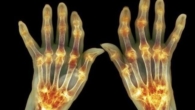
Decaffeinated coffee: the advantages and disadvantages of the drink are listed
0
Caffeine is a psychostimulant found in coffee, tea and many soft drinks. In certain situations, it can have unwanted effects on the body, so decaffeinated coffee is a more reasonable option for people who want to reduce their caffeine intake. At the same time, coffee and tea without caffeine continue to contain this substance.
More and more data show that drinking tea and coffee in moderation can improve health. Harvard research has shown that those who drink tea or coffee have a lower risk of developing diabetes and possibly cardiovascular disease. However, caffeine can negate some of these benefits, especially if you are very sensitive to its effects.
Among other things, caffeine can cause anxiety and sleep problems. If you want to experience the health benefits of tea and coffee without the negative effects of caffeine, a decaffeinated beverage is best for you.
Health Benefits of Drinking Decaffeinated Coffee
Both regular coffee and decaffeinated coffee appear to strengthen the brain's defenses against age-related mental decline, reports the paper citing a study published in the journal Elsevier. A key discovery was that substances contained in decaffeinated coffee can protect neurons in the brain. It can help prevent the development of neurodegenerative diseases such as Alzheimer's and Parkinson's.
However, exceeding four cups of caffeinated coffee a day can cause negative effects:
- headache;< /li>
- insomnia;
- nervousness;
- irritability.
Negative consequences also include: frequent urination or inability to control urination, rapid heartbeat and muscle tremors.









Leave a Reply